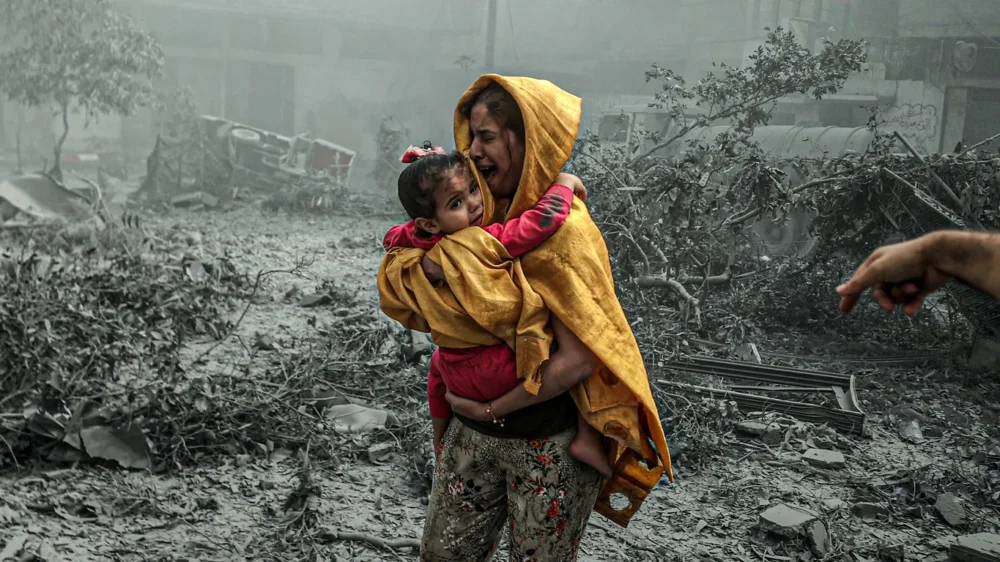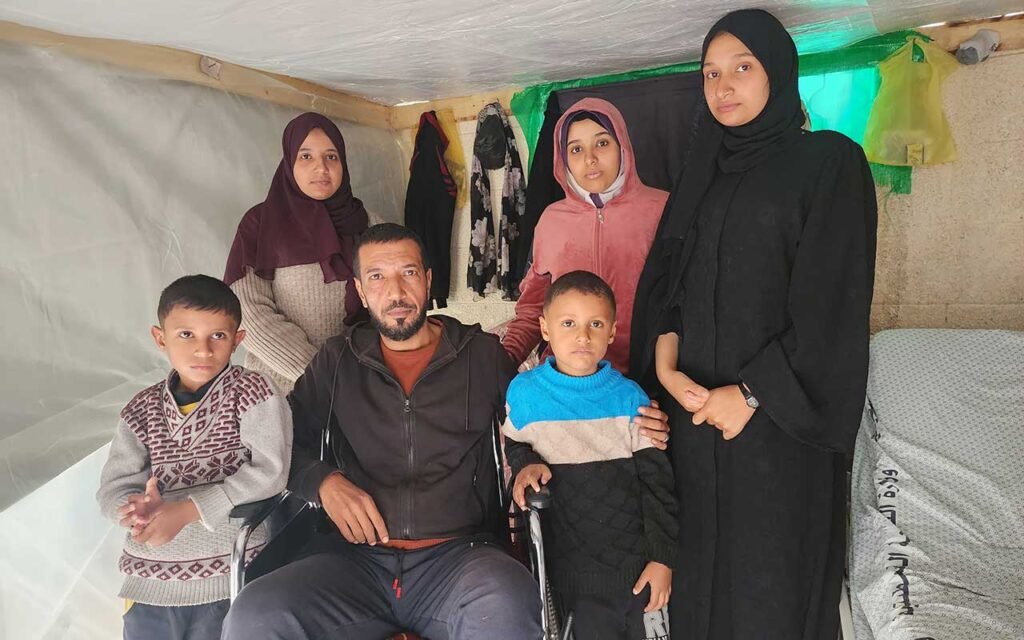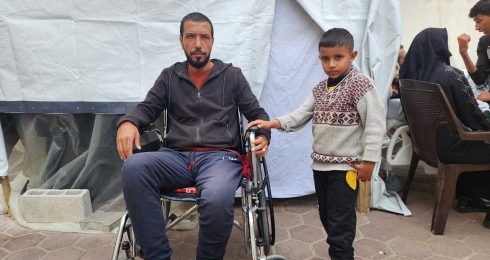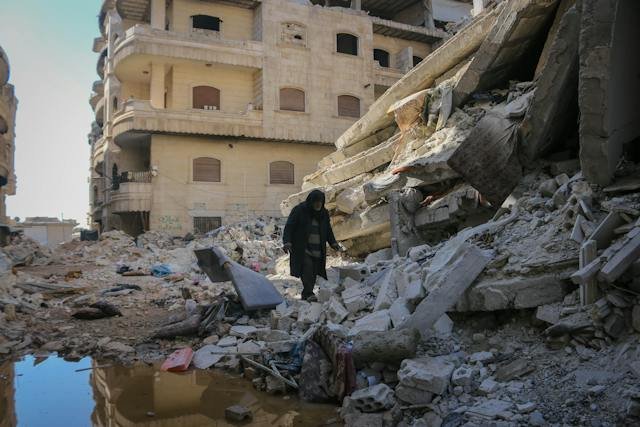Voice From Gaza
Nur al-Hilu
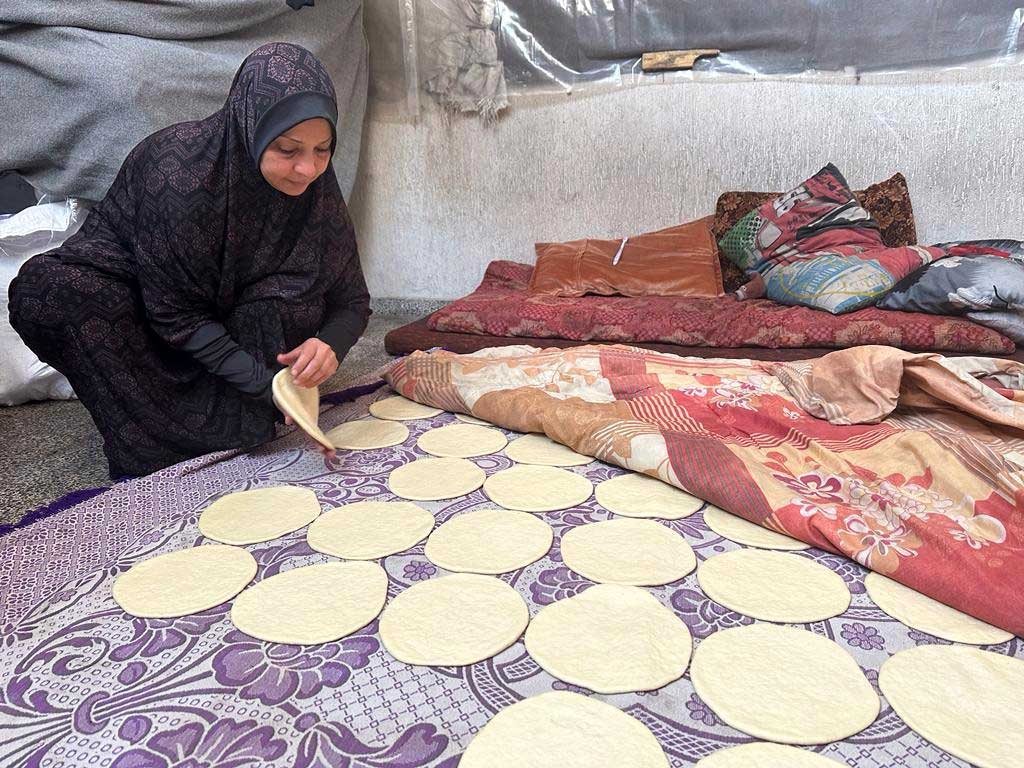

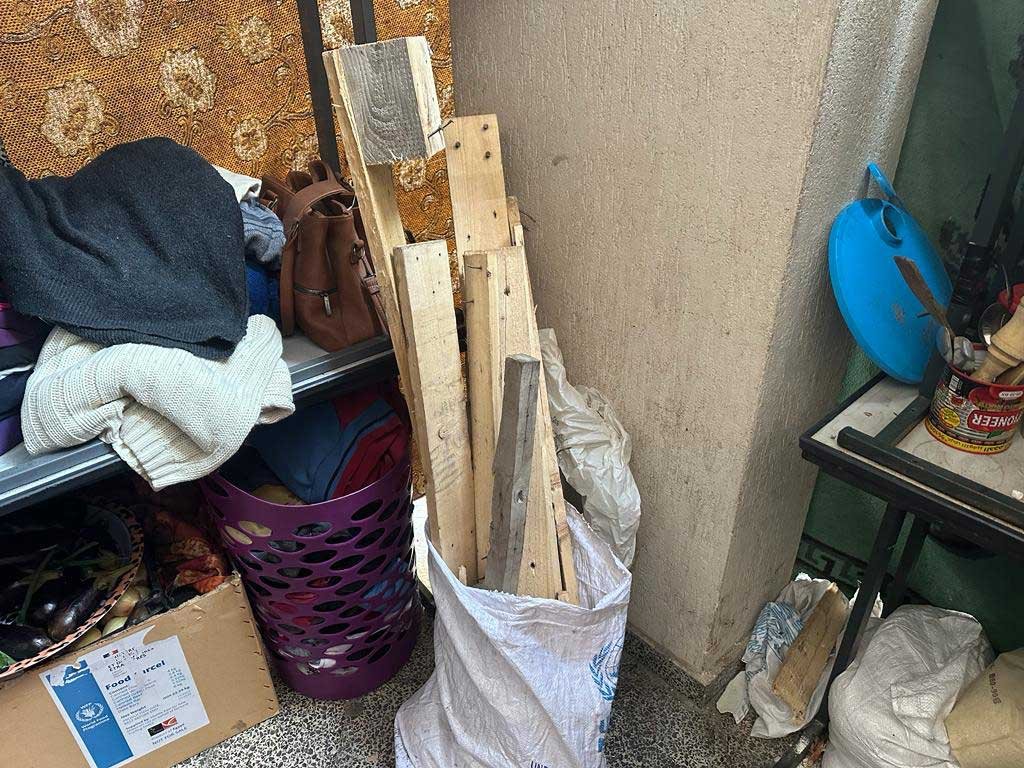

A 44-year-old mother of three from Jabalya Refugee Camp, Nur described the harsh living conditions in an IDP camp in Rafah, southern Gaza
By Bhuj Mortaza
My husband and I lived with our three children, Ahmad, 11, Sa’id, 10, and ‘Atef, 8, in Jabalya R.C. On the very first day of the war, 7 October 2023, we packed a bag with clothes for the children and ourselves, after we heard bombings in the area. But in the meantime, we stocked up on food and drinks and stayed home. The water stopped running very soon after, and we hardly went out for fear of the bombs. Read More
My husband and I lived with our three children, Ahmad, 11, Sa’id, 10, and ‘Atef, 8, in Jabalya R.C. On the very first day of the war, 7 October 2023, we packed a bag with clothes for the children and ourselves, after we heard bombings in the area. But in the meantime, we stocked up on food and drinks and stayed home. The water stopped running very soon after, and we hardly went out for fear of the bombs.
After about a week, two houses near us were bombed. The windows in our house shattered, some of the walls were damaged, and the electricity was cut off. Everything was covered in dust. We decided we had to leave the house and go to the five-story building my parents and siblings live in, on al-Jalaa Street in Gaza City. Almost 100 people were already staying there, my sisters, uncles and cousins, and it was very crowded. We were short on water and food and had no power. Each room had 20 to 30 people living in it, and we slept huddled together. We stayed there for about five days, and then we had to leave there as well, because they bombed nearby buildings. We moved to UNRWA’s Salah a-Din school in a-Rimal neighborhood, where there were a lot of internally displaced persons already. We’d only been there one day when we received an order from the army to evacuate to the Khan Yunis area.
We went to Khan Yunis, to my brother Nasser al-Hilu’s apartment in the Hamad Towers. He was already sheltering a lot of IDPs, and it was insanely crowded. We were all exhausted, hungry, scared and very cold. The anxiety was plain to see on the children’s faces. Some of the family, especially the children, started getting sick. We stayed there for 30 extremely difficult days. We cooked over a fire, and every time we went to collect wood, we were very scared because of the planes circling above us. One day, while we were cooking outside on a bonfire, planes bombed some land nearby and we all ran away. There was no running water there, either, and we had to buy water in 18-liter containers. We couldn’t shower, because there was so little water and no way to heat it. There was barely any food in the stores. We also ran out of money. My husband is an office worker with the [Palestinian] Authority, and he only made 1,000 NIS (~ USD 275) a month, but he hasn’t been paid at all since the war started.
Then the army again ordered us to evacuate and move to Rafah. We left the Hamad Towers and went to an IDP camp near an UNRWA school in Rafah. Now we’re here, in a makeshift 20-square-meter tent we made out of bits of cloth and blankets. There are 32 of us crowding in this tent, including 14 children, mine and my sister’s. At night, we sleep huddled together. It’s hard to sleep because of the crowding, the cold and the rain.
Every morning, we have to look for food and water all over again. We start the day by making pita dough, and the children collect firewood. We bake about 60-70 pitas, for everyone, on an iron sheet.
Once every ten days, UNRWA employees give out tinned food: four cans of cheese and meat, three of tuna, one of jam and a carton of milk. It’s not enough for ten days, and the rest of the time we only eat pita bread. Sometimes, we don’t even have that for a day or two, and we simply go without food.
We send the children to fetch water from the school, but there’s never enough for drinking, laundry, basic bathing and dishwashing. We haven’t showered for a month and a half because of the lack of water and also because it’s impossible to heat it.
There are long lines for the toilets, because there are more than 2,000 people in the school area. Because there’s no electricity and you can’t charge the phones, we don’t have flashlights at night, and it’s very scary to go to the bathroom. The children pee in a bottle.
We’ve been here for a month and a half now, and we’re still 32 people in one tent. We’re very cold and have almost no winter clothes. We sit close to each other to keep warm. Some people in the family have no shoes, and every few people share a pair of flip-flops. The crowding is unbearable, and there is absolutely no privacy. It’s always noisy. All of this makes the stress worse.
It’s impossible to get sanitary napkins here, which increases the suffering for us women and girls. We use pieces of cloth and wash them after use, which, of course, is made difficult by the lack of water.
I’ve had an iron deficiency since before the war and need injections regularly. I was supposed to get 30 injections since the beginning of the war, but I’ve only managed to get four, so I get dizzy and exhausted.
This is our life now, constant suffering. We’re exhausted from the bombings and from these conditions. Our lives are on hold. We only hope the war ends already and we can go back to our homes.
